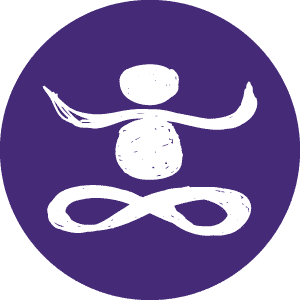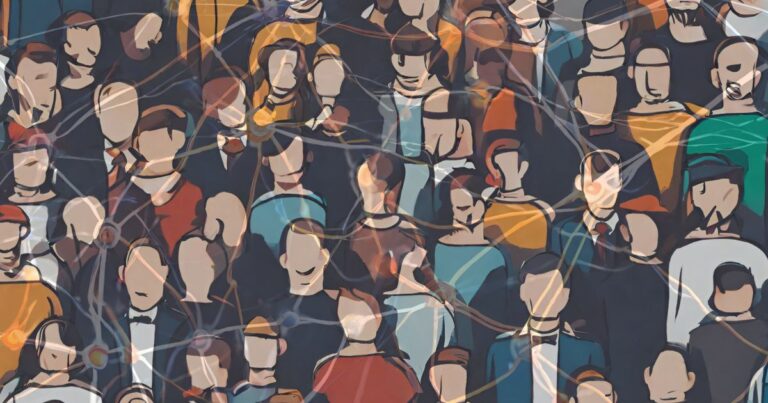Mental health “issues” are so woven into the fabric of our lives that we are as likely to miss them as the sound of water coming from the faucet. Sleep, nutrition, sunlight, movement, moods, and a myriad of other issues affect the function of our mind and our mental health is truly as dynamic a force as any that we encounter.
Health and well being, physical and mental, requires equilibrium. It supports resilience and the capacity to manage stress. Stress, I should note, is best understood simply as change. Our ability to maintain equilibrium in the midst of change is an indication of good health.
Equilibrium is sleeping soundly and waking refreshed, eating and fully digesting food, giving support to others and receiving it from them. Equilibrium is sometimes feeling happy, sometimes sad. The ability to experience a full range of emotion is an indicator of good mental health. The ability to also think rationally and act intentionally alongside emotion is also an indication of good mental health.
When we are familiar with this state of equilibrium and return consistently to it, we have the freedom to try new things. Growth is possible when we are healthy! “Failure to thrive” is a term that the medical establishment uses to describe a lack of expected growth in a newborn. It happens with grown-ups too.
When relationships, careers, curiosity, hobbies, compassion, or creativity stagnate or suffer (or can’t be found at all) we can assume that mental health “issues” are involved.
It is often a lack of awareness of these issues that leads to their amplification.
Awareness, in fact, may be the key to mental health. Awareness of what’s going on in the moment allows us to respond with intention. Awareness of the big picture, patterns, trends, and opportunities, allows us to heal and grow… not only from our own difficulties but in communities and families, even across generations.
The mind is a complex concept and really isn’t fully understood. Mental health can be a complex dynamic and feel elusive. However, a healthy mind actually requires just a few basic things: fuel, connection, and rest. Here are a few thoughts about each of them.
FUEL
Fuel for the mind is both food and experience. The brain, agreed by most to be a major component of the mind is an organ. Thinking, especially thinking about new things, uses more calories than just about any other activity. Giving your brain consistent access to the fuel that it needs, and knowing when it’s going to need more, is key to mental health. Small, regular portions of nutritious foods that include complex carbohydrates, protein and fat accomplish this. Preparing food in advance for when you’re busy is key to avoiding the inevitable crash that comes when the brain is deprived.
Sense experience is the other fuel for the mind. The senses are the gateways to the brain and largely responsible for activating its other functions (memory, imagination, personality, thinking, and consciousness.) Recognizing the ways that we feed our minds with sensory input can help us to track down the sources of mental illnesses including depression and anxiety.
What are you taking in?
CONNECTION
We’re dependent on connection for survival. A newborn human has absolutely no chance without it. An adult human’s lifespan is significantly reduced when it is weak.
It is not only the structure but also the function of our minds that makes this so.
Brain cells have long tendrils that reach towards and connect with other brain cells to make chains. These chains are neural networks. They are our habits. Bones, muscles, tendons, ligaments, and fascia also reach towards and bind together to create strength and form.
Mirror neurons (specialized brain cells) make it so that we literally reflect back what information our brains receive. This is how we learn language and develop the multitude of other cultural competencies that solidify our identity, and give us a sense of belonging.
It’s not just anatomical connections, it’s also connections between our past and our future, our minds and our bodies (intentions and actions), the natural world and all beings who inhabit it, that give us our sense of self. Contentment and confidence, strong indicators of mental health comes with it.
Truly, it is awareness of connection that exemplifies mental health. It is when we feel separate, isolated, alone, and unsupported that we tend to suffer most.
REST
In between meals and experiences, the mind needs time to rest and digest. During that time connections are found and strengthened. Without it, chaos is likely to ensue. Pathways become clogged, tangled, and tired. The resiliency of the mind is dependent on its ability to be alone.
Solitude and sleep are essential to mental health.
Different aspects of consciousness are explored with each but they share an essential component. During both there is not input from outside sources. This is deeply restorative. It is how the mind makes sense of experience.
Prioritize sleep and make time for solitude.
It might be as simple as turning off the radio in your car during your commute or going for a walk without a podcast or audio book in your ears. If you find that you’re agitated or uncomfortable with rest, you’re not alone. Connection can help here too.
At Yoga for Mental Health we’ve found that our connection to you and the practices that we do together are working! Compassion and creativity are more and more accessible and so are joy and gratitude.
Consistency is more important than intensity and every bit of effort counts. Sometimes the pace of progress slows but you’re always moving forward… please notice the need for rest and even welcome it here.
Find the rhythms in your experience and take advantage of the opportunities to reinforce practice. Every Monday morning we start with a guided meditation at 8 am (AKDT.) We’d love to have you join us!
We are in this together! We hope to connect with you again soon.





